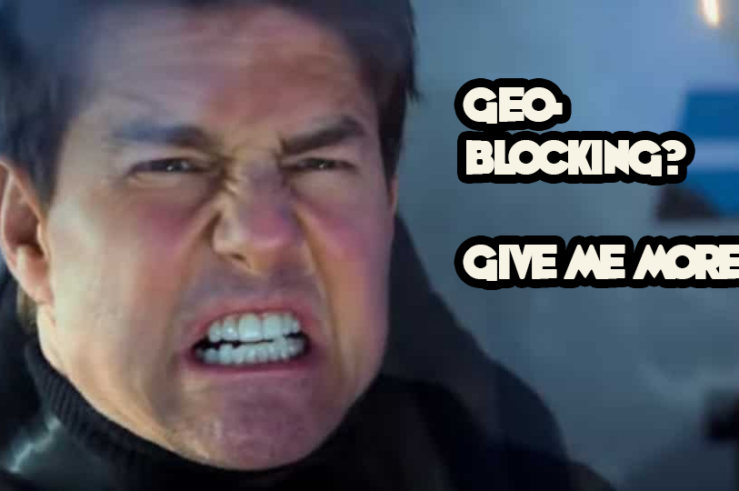Showing results for: “price gouging”
The Antitrust Prohibition of Favoritism, or the Imposition of Corporate Selflessness
It is my endeavor to scrutinize the questionable assessment articulated against default settings in the U.S. Justice Department’s lawsuit against Google. Default, I will argue, is no antitrust fault. Default in the Google case drastically differs from default referred to in the Microsoft case. In Part I, I argue the comparison is odious. Furthermore, in ... The Antitrust Prohibition of Favoritism, or the Imposition of Corporate Selflessness
Google and Shifting Conceptions of What It Means to Improve a Product
Judges sometimes claim that they do not pick winners when they decide antitrust cases. Nothing could be further from the truth. Competitive conduct by its nature harms competitors, and so if antitrust were merely to prohibit harm to competitors, antitrust would then destroy what it is meant to promote. What antitrust prohibits, therefore, is not ... Google and Shifting Conceptions of What It Means to Improve a Product
Rolled by Rewheel, Redux
The Finnish consultancy Rewheel periodically issues reports using mobile wireless pricing information to make claims about which countries’ markets are competitive and which are not. For example, Rewheel claims Canada and Greece have the “least competitive monthly prices” while the United Kingdom and Finland have the most competitive. Rewheel often claims that the number of ... Rolled by Rewheel, Redux
Facebook and the Pros and Cons of Ex Post Merger Reviews
The Federal Trade Commission and 46 state attorneys general (along with the District of Columbia and the Territory of Guam) filed their long-awaited complaints against Facebook Dec. 9. The crux of the arguments in both lawsuits is that Facebook pursued a series of acquisitions over the past decade that aimed to cement its prominent position ... Facebook and the Pros and Cons of Ex Post Merger Reviews
Geo-Blocking: What is it Good For… A Surprising Amount, Actually.
The European Court of Justice issued its long-awaited ruling Dec. 9 in the Groupe Canal+ case. The case centered on licensing agreements in which Paramount Pictures granted absolute territorial exclusivity to several European broadcasters, including Canal+. Back in 2015, the European Commission charged six U.S. film studios, including Paramount, as well as British broadcaster Sky ... Geo-Blocking: What is it Good For… A Surprising Amount, Actually.
Conflict of Interest in Prosecuting Police Officers: Examining the Incentives Facing District Attorneys
High-profile cases like those of Michael Brown in Ferguson, Missouri, and Breonna Taylor in Louisville, Kentucky, have garnered attention from the media and the academy alike about decisions by grand juries not to charge police officers with homicide. While much of this focus centers on alleged racial bias on the part of police officers and ... Conflict of Interest in Prosecuting Police Officers: Examining the Incentives Facing District Attorneys
Big Tech but Bigger Ideas
As an academic working at the intersection of economics, law, and innovation, I was excited to see Nicolas Petit apply an interdisciplinary approach to investigate big tech in the digital economy. Working across law, business, and engineering has taught me the importance of bringing together different theoretical perspectives and mindsets to address complex issues. [RL1] Below ... Big Tech but Bigger Ideas
The Limits of Rivalry
I am left wondering, however, if he’s misdiagnosed the problem – or at least whether the cure he offers would be seen as sufficient by those most vocally asserting that antitrust is failing. And, of course, I recognize that his objective in writing this book is not to bring harmony to a deeply divided debate, ... The Limits of Rivalry
Buck’s “Third Way”: A Different Road to the Same Destination
Congressman Buck’s “Third Way” report offers a compromise between the House Judiciary Committee’s majority report, which proposes sweeping new regulation of tech companies, and the status quo, which Buck argues is unfair and insufficient. But though Buck rejects many of the majority’s reports proposals, what he proposes instead would lead to virtually the same outcome ... Buck’s “Third Way”: A Different Road to the Same Destination
The Dangerous Implications of Changing Antitrust Presumptions
One of the key recommendations of the House Judiciary Committee’s antitrust report which seems to have bipartisan support (see Rep. Buck’s report) is shifting evidentiary burdens of proof to defendants with “monopoly power.” These recommended changes are aimed at helping antitrust enforcers and private plaintiffs “win” more. The result may well be more convictions, more ... The Dangerous Implications of Changing Antitrust Presumptions
Antitrustifying Contract: Thoughts on Epic Games v. Apple and Apple v. Qualcomm
In the hands of a wise philosopher-king, the Sherman Act’s hard-to-define prohibitions of “restraints of trade” and “monopolization” are tools that will operate inevitably to advance the public interest in competitive markets. In the hands of real-world litigators, regulators and judges, those same words can operate to advance competitors’ private interests in securing commercial advantages ... Antitrustifying Contract: Thoughts on Epic Games v. Apple and Apple v. Qualcomm
It’s Not So Simple Who Owns “Your” Data
What kind of regulation? Treating digital platforms like public utilities won’t work, Petit argues, because the product is multidimensional and competition takes place on multiple margins (the larger theme of the book): “there is a plausible chance that increased competition in digital markets will lead to a race to the bottom, in which price competition ... It’s Not So Simple Who Owns “Your” Data








